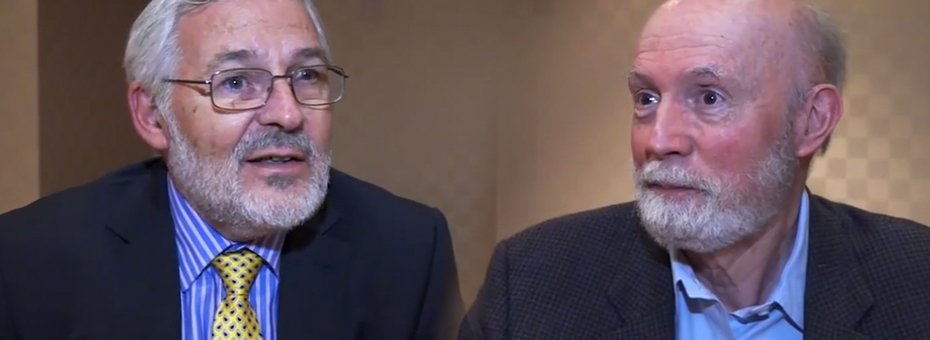Last month I attended the UK Lean Summit, organized by the Lean Enterprise Academy. I had the pleasure to interview professors Dan Jones and Jim Womack – founding fathers of the lean movement – for Planet Lean, the online publication of Lean Global Network.
I discussed with them the evolution, current state, and future of lean thinking. Watch the full video below and read on for excerpts.
On how far the lean movement has gone:
“We succeeded in creating a whole new set of functions… The consequence is most management decided they could outsource Lean… [That’s doesn’t help] people think about how to define what’s important, deploy on things that are opportunities, countermeasure problems, get stability… Lean is everywhere and that’s good. That’s better than nothing, but it’s not as good as it needs to be.”
–Jim Womack
On the challenge society is having in terms of picking up lean thinking:
“The political discourse is all about external issues to actual people creating value. It’s all outside the box. What’s inside the box, how people actually work to create value (which should be transparent, open, and understood by everyone), is for most managers still a black box. We need to light up that box.”
–Jim Womack
On how lean is being used to navigate turbulent economic times:
“As we’ve entered into a world of stagnation… people are beginning to realize that simply outsourcing or doing other easy tricks isn’t going to [help]. I think we’re beginning to see a second wave of interest in Lean in quite unexpected quarters where the realization is clear that we’re going to have to do the same or more with less resource… Healthcare, but also renewing our infrastructure and transport systems and water systems… It’s the whole business model of how people cooperate with each other.”
–Dan Jones
On the big issue for startups:
“Most companies when they start are lean… The issue starting up is [rapid testing] and winnowing out false paths until you find the true path… Once you get started, you have a different question, which is how to avoid becoming the kind of sclerotic, mass production kind of organization, which happens naturally.”
–Jim Womack
On value streams versus projects and what we can learn from younger organizations:
“Two things are changing… Customers are more demanding and can [clearly see] what the situation is and what the competition is… and also there’s a new generation of employees who aren’t going to be willing to work in the same command and control infrastructure, but want to do meaningful work.”
–Dan Jones
“The fundamental differential of Lean is that it’s about not just solving today’s problems, but learning deeper skills to stabilize and improve the work tomorrow and solving tomorrow’s problems. Learning is at the core of the organizational design of the future.”
–Dan Jones
On what’s next:
“We’ve been talking about [supporting workers rather than just reporting on work]. We’re much weaker at finding ways to support. [And the next generation’s] expectation actually is they are going to be supported rather than be controlled… So how can we as part of a lean community find a way to support those who are doing the real value creation?”
–Jim Womack
“I’m very optimistic about the contribution Lean can make to a digital age… We’re also at a point of time in which everybody has defined Lean in their own way, so there’s a great deal of confusion… I think there’s a time also to restate the fundamentals… but we need to do it through different channels. It’s a much more experiential, example-based [way of learning].”
–Dan Jones
